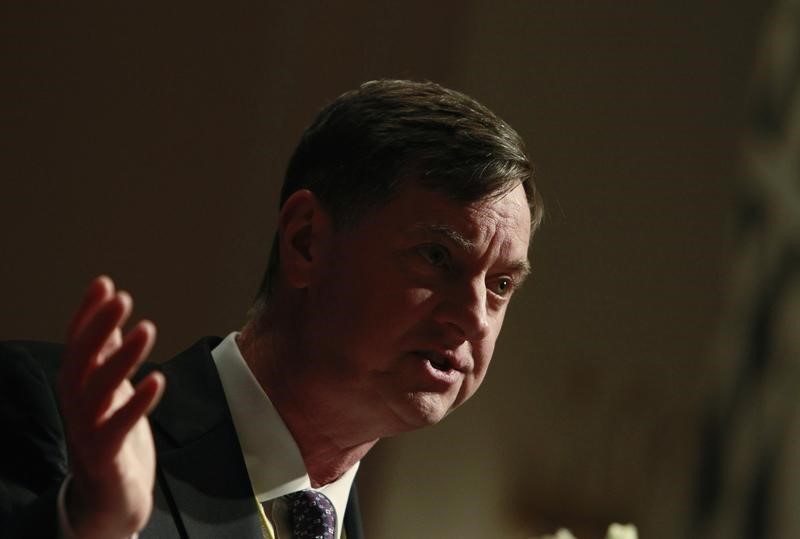COLUMBUS, Ind. (Reuters) - With U.S. inflation uncomfortably low and the unemployment rate still too high, the Federal Reserve should hold off on raising short-term interest rates until early next year, a top Fed policymaker said on Monday.
Still, Chicago Fed President Charles Evans said, rate hikes could begin this year without harming the recovery.
"My preference would be that we not raise rates until we're confident that we are going to see rates rise, and those rate increases be clearly in train," he told reporters after a speech here. "However having said that, it is the overall stance of monetary policy over a longer period of time that will ultimately be determinative, so a properly shallow path of increases, even if we were to increase rates sooner than I would like, could still be quite supportive of continued strong economic recovery, hopefully continued increases in inflation."
The Fed can achieve its goals without any additional stimulus like a new bond-buying programme, "as long as people sort of understand that we could go above 2 percent, that would be perfectly fine, as long as it is in a controlled sense, not anything outsized or too long-lasting, but neither would it have to be only three months, that type of thing."
A voting member this year on the U.S. central bank's policy-setting panel, Evans told the group that while the subdued job gains across America in March were likely transitory, unemployment at 5.5 percent is still about a half a percentage point higher than it ought to be.
More pressing in his view, inflation has been running below the Fed's 2-percent target for years, and is likely to take until 2018 before it returns to that target, he said.
"I likely will not feel confident enough to begin to raise rates until early next year," he told the Columbus Economic Development Board. "I think if we top out during this cycle with inflation not getting to 2 percent that's going to be a problem for us longer term," he told reporters afterward.
Evans is among the most dovish policymakers at the table with Fed Chair Janet Yellen, who must manage the delicate task of deciding when to raise U.S. interest rates for the first time since 2006.

Most Fed officials, including Yellen, expect economic conditions will be ripe for higher interest rates sometime this year.